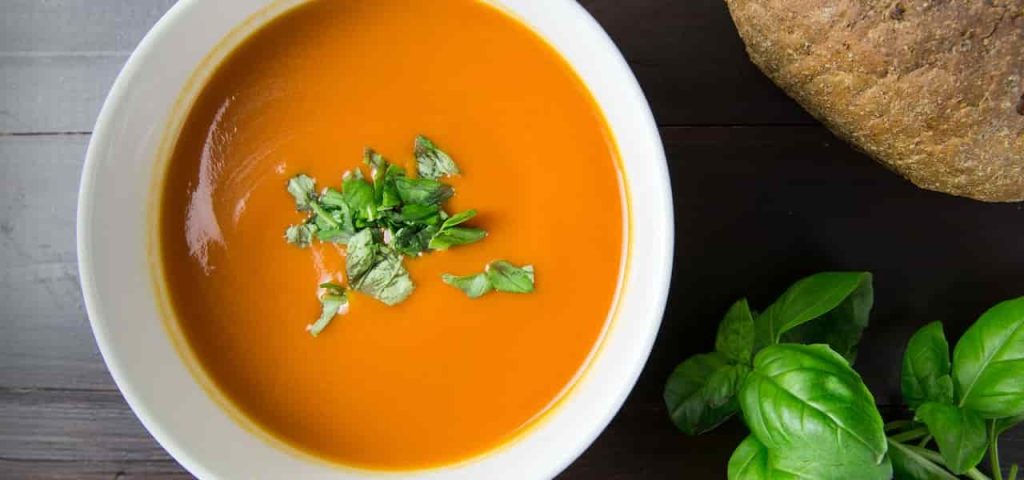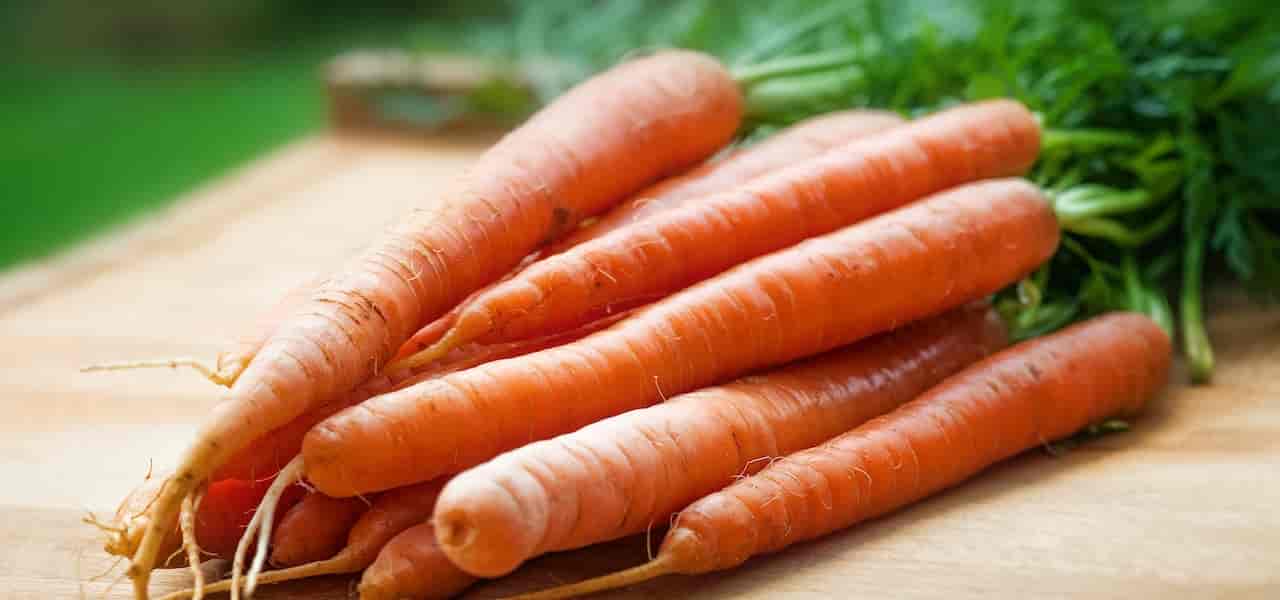Here is your complete guide to carrots good for weight loss.
Introduction to Carrots Good for Weight Loss
Carrots are often overlooked when it comes to weight loss, but these vibrant root vegetables pack a powerful punch in terms of nutrition and taste. Whether you enjoy them raw, cooked, or blended into a refreshing juice, carrots offer a wide array of health benefits that can support your weight loss journey. In this article, we will delve into the nutritional value of carrots, explore how they aid in weight loss, and provide practical tips for incorporating them into your diet. So, get ready to discover why carrots good for weight loss should become your new best friend on the path to shedding those extra pounds!
Nutrition Facts of Carrots
| Nutrient | Amount per 100g |
|---|---|
| Calories | 41 |
| Total Fat | 0.2g |
| Saturated Fat | 0g |
| Trans Fat | 0g |
| Cholesterol | 0mg |
| Sodium | 69mg |
| Total Carbohydrate | 10g |
| Dietary Fiber | 2.8g |
| Sugars | 4.7g |
| Protein | 0.9g |
| Vitamin A | 16706 IU |
| Vitamin C | 5.9mg |
| Calcium | 33mg |
| Iron | 0.3mg |
| Potassium | 320mg |
The Nutritional Powerhouse of Carrots
Carrots may seem humble, but their nutritional profile is anything but ordinary. These crunchy wonders are packed with vitamins, minerals, and antioxidants that promote overall well-being. Loaded with vitamin A, vitamin C, potassium, and fiber, carrots are a low-calorie option that keeps you feeling satisfied while nourishing your body.
Carrots as a Weight Loss Aid
When it comes to weight loss, carrots can be your secret weapon. Their high fiber content and low energy density make them an ideal addition to your diet. By incorporating carrots as a healthy snack or including them in your meals, you can feel fuller for longer and curb unnecessary cravings. The natural sweetness of carrots satisfies your taste buds without adding excessive calories, making them a guilt-free choice for weight-conscious individuals.
Carrots and the Fat-Burning Process
Did you know that carrots can actually help your body burn fat? It’s true! Carrots contain a powerful antioxidant called beta-carotene, which not only gives them their vibrant orange color but also plays a role in promoting fat oxidation. By adding carrots to your meals, you can boost your metabolism and encourage your body to burn stored fat more efficiently.
Incorporating Carrots into Your Weight Loss Plan
Now that you understand the benefits of carrots for weight loss, it’s time to learn how to incorporate them into your daily routine. Start by keeping a stash of fresh, crunchy carrots on hand for snacking between meals. You can also add grated carrots to salads, soups, or stir-fries to increase the nutrient density of your dishes. For a sweet treat, try whipping up a carrot smoothie or baking some delicious carrot muffins.
Healthy Recipes for Weight Loss with Carrots
Here are some nutritious and delicious recipes that incorporate carrots and can support your weight loss goals:

Carrot and Ginger Soup
| Ingredients | Instructions |
|---|---|
| 1 lb carrots, peeled and chopped | 1. In a large pot, heat olive oil over medium heat. |
| 1 onion, chopped | 2. Add chopped onion, garlic, and ginger. Sauté until fragrant. |
| 2 cloves garlic, minced | 3. Add carrots, vegetable broth, and season with salt and pepper. |
| 1-inch piece of ginger, grated | 4. Bring to a boil, then reduce heat and simmer until carrots are tender. |
| 4 cups vegetable broth | 5. Use an immersion blender to puree the soup until smooth. |
| Salt and pepper to taste | 6. Serve hot and garnish with fresh herbs, if desired. |
| Fresh herbs for garnish |
Carrot and Quinoa Salad
| Ingredients | Instructions |
|---|---|
| 2 cups cooked quinoa | 1. In a large bowl, combine cooked quinoa, grated carrots, and peas. |
| 1 cup grated carrots | 2. In a small bowl, whisk together olive oil, lemon juice, and honey. |
| 1/2 cup cooked peas | 3. Drizzle the dressing over the quinoa mixture and toss to combine. |
| 2 tablespoons olive oil | 4. Season with salt and pepper to taste. |
| 1 tablespoon lemon juice | 5. Chill in the refrigerator for at least 30 minutes before serving. |
| 1 teaspoon honey | 6. Serve cold and enjoy as a healthy and refreshing salad. |
| Salt and pepper to taste |
Carrot and Zucchini Muffins
| Ingredients | Instructions |
|---|---|
| 1 1/2 cups whole wheat flour | 1. Preheat the oven to 350°F (175°C). |
| 1/2 cup rolled oats | 2. In a large bowl, mix together flour, oats, baking powder, salt. |
| 1 teaspoon baking powder | 3. In a separate bowl, whisk together mashed bananas, honey, eggs. |
| 1/2 teaspoon salt | 4. Add grated carrots, zucchini, and melted coconut oil. |
| 2 ripe bananas, mashed | 5. Pour the wet mixture into the dry ingredients and mix well. |
| 1/4 cup honey | 6. Spoon the batter into muffin cups and sprinkle with walnuts. |
| 2 eggs | 7. Bake for 18-20 minutes or until a toothpick comes out clean. |
| 1 cup grated carrots | 8. Allow muffins to cool before serving. |
| 1 cup grated zucchini | |
| 1/4 cup melted coconut oil | |
| Chopped walnuts for topping |
Enjoy these recipes as part of your weight loss journey while benefiting from the nutritious goodness of carrots. Remember to adjust portion sizes according to your specific dietary needs and consult a healthcare professional if you have any specific dietary restrictions or concerns.
Additional Health Benefits of Carrots
While weight loss may be your primary goal, carrots offer additional health benefits that shouldn’t be overlooked. The fiber in carrots promotes healthy digestion, preventing constipation and supporting gut health. Moreover, the high levels of vitamin A in carrots contribute to improved vision and overall eye health. By incorporating carrots into your weight loss plan, you’re not only shedding pounds but also investing in your long-term well-being.
How Do Carrots Help with Weight Loss?
Carrots offer several mechanisms that can aid in weight loss. Let’s explore how carrots can help you on your weight loss journey:
- Low in calories, high in fiber: Carrots are a low-calorie food, meaning you can enjoy them without consuming excessive calories. Additionally, they are high in dietary fiber, which promotes feelings of fullness and reduces the likelihood of overeating.
- Satiety and portion control: The fiber in carrots helps keep you satiated for longer periods, curbing cravings and preventing unnecessary snacking. By incorporating carrots into your meals or enjoying them as a snack, you can support portion control and maintain a calorie deficit, which is crucial for weight loss.
- Nutrient density: Despite being low in calories, carrots are packed with essential nutrients such as vitamins A and C, potassium, and antioxidants. When you’re on a weight loss journey, it’s important to provide your body with the necessary nutrients to stay healthy. Carrots offer a nutritious option to meet your daily vitamin and mineral needs.
- Hydration and hydration: Carrots have a high water content, which aids in hydration. Staying properly hydrated is essential for weight loss as it helps maintain optimal bodily functions, supports metabolism, and can prevent overeating often mistaken for hunger.
- Healthy snack alternative: Carrots are a great alternative to unhealthy snacks that are often high in refined sugars and unhealthy fats. By substituting calorie-dense snacks with carrots, you can satisfy your cravings while keeping your calorie intake in check.
- Versatility and enjoyment: Carrots can be enjoyed in various ways, including raw, cooked, juiced, or blended into smoothies. Their versatility allows you to incorporate them into your diet in creative and delicious ways, making your weight loss journey more enjoyable and sustainable.
Remember, while carrots can support weight loss efforts, it’s important to maintain a balanced diet and incorporate other healthy foods and exercise for long-term success. Enjoy the benefits of carrots as part of an overall healthy lifestyle.
Read More About The Health Benefits of Asparagus.
Frequently Asked Questions (FAQs) about Carrots Good for Weight Loss
Do carrots help you lose belly fat?
While carrots alone cannot specifically target belly fat, they can contribute to overall weight loss, which includes reducing belly fat. Carrots are low in calories and high in fiber, which can help you feel full and satisfied. Incorporating carrots into a balanced diet, along with regular exercise, can support weight loss efforts, including the reduction of belly fat.
Read More Is Pasta Bad for Weight Loss? Debunking the Myths.
Is it okay to eat 3 carrots a day?
Absolutely! Eating three carrots a day is generally considered safe and can be a healthy addition to your diet. Carrots are low in calories and packed with essential nutrients, including vitamins A and C, potassium, and fiber. However, it’s important to maintain a varied and balanced diet, so while carrots are beneficial, make sure to include other fruits, vegetables, and sources of protein in your meals as well.
Read Also: The Surprising Health Benefit of Celery Tea.
Can we eat carrot during weight loss?
Yes, carrots can be an excellent addition to a weight loss diet. They are low in calories, high in fiber, and provide valuable nutrients. The fiber in carrots helps promote feelings of fullness, reducing the likelihood of overeating. Additionally, the natural sweetness of carrots can satisfy cravings for sugary snacks, making them a healthy alternative. Just be mindful of portion sizes and incorporate carrots as part of a balanced and varied diet for optimal weight loss results.
Are carrots okay to eat every day?
Absolutely! Carrots are safe and nutritious to eat every day. In fact, incorporating carrots into your daily diet can provide numerous health benefits. They are rich in vitamins, minerals, and antioxidants that support overall well-being. However, it’s important to remember that a well-rounded diet should include a variety of fruits, vegetables, proteins, whole grains, and healthy fats. So, feel free to enjoy carrots daily, but also strive for dietary diversity to ensure you’re meeting all your nutritional needs.
Read More About What is The Benefit of Papaya.
Conclusion
Carrots are a versatile, nutrient-dense vegetable that deserves a prominent place in your weight loss journey. From their impressive nutritional profile to their ability to support fat burning and promote satiety, carrots offer a range of benefits that can help you achieve your weight loss goals. So, whether you enjoy them as a snack, in salads, or blended into delicious smoothies, make sure to include carrots in your daily diet. Let these vibrant veggies be your ally as you embark on your path to a healthier, slimmer you. Here’s to a delicious and nutritious weight loss journey with carrots by your side!

